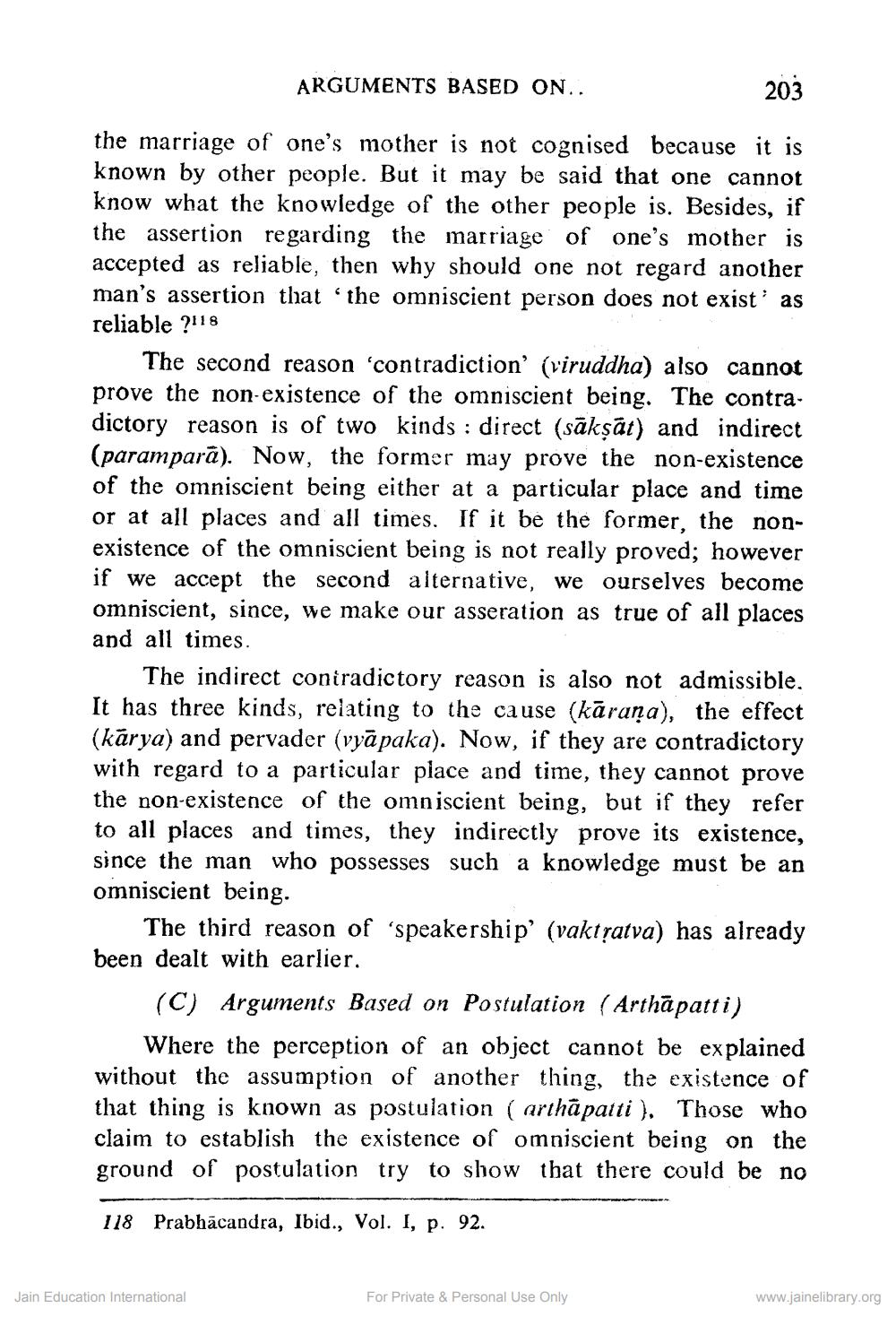________________
ARGUMENTS BASED ON..
203
the marriage of one's mother is not cognised because it is known by other people. But it may be said that one cannot know what the knowledge of the other people is. Besides, if the assertion regarding the marriage of one's mother is accepted as reliable, then why should one not regard another man's assertion that the omniscient person does not exist as reliable ?118
The second reason 'contradiction' (viruddha) also cannot prove the non-existence of the omniscient being. The contradictory reason is of two kinds : direct (sāksāt) and indirect (paramparā). Now, the former may prove the non-existence of the omniscient being either at a particular place and time or at all places and all times. If it be the former, the nonexistence of the omniscient being is not really proved; however if we accept the second alternative, we ourselves become omniscient, since, we make our asseration as true of all places and all times.
The indirect coniradictory reason is also not admissible. It has three kinds, relating to the cause (kāraņa), the effect (karya) and pervader (vyāpaka). Now, if they are contradictory with regard to a particular place and time, they cannot prove the non-existence of the omniscient being, but if they refer to all places and times, they indirectly prove its existence, since the man who possesses such a knowledge must be an omniscient being.
The third reason of 'speakership’ (vakt satva) has already been dealt with earlier.
(C) Arguments Based on Postulation (Arthāpatti)
Where the perception of an object cannot be explained without the assumption of another thing, the existence of that thing is known as postulation ( arthā patti ). Those who claim to establish the existence of omniscient being on the ground of postulation try to show that there could be no
118
Prabhācandra, Ibid., Vol. I, p. 92.
Jain Education International
For Private & Personal Use Only
www.jainelibrary.org




